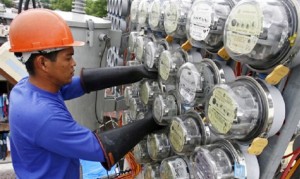Gov’t urged to cut taxes on energy
MANILA, Philippines–The Management Association of the Philippines (MAP) is asking the Department of Finance (DOF) to consider various proposals to lower or remove certain taxes on energy to help cut electricity costs for consumers even without amending Republic Act No. 9136, or the Electric Power Industry Reform Act (Epira).
In a position paper, MAP suggested that the DOF revisit the recommendation of the USAID Study on Taxes and Rationalization so that government taxes such as the value-added taxes (VAT), royalties on natural gas and others could be harmonized. These taxes account for P0.35 to P2.75 a kWh of the total electricity price paid by consumers.
The group said the removal of VAT alone could effectively reduce electricity tariffs by 7.5 to 8.1 percent. However, doing this would remove the benefit to be enjoyed from buying VAT-free renewable energy (RE) supply. “Thus, the zero rating of VAT will effectively diminish the incentives towards RE,” MAP said. If the DOF would take this route, MAP said other incentives envisioned by the RE Act must then be in effect to continue encouraging RE development.
An alternative would be to lower the VAT from 12 percent to 6 percent to effectively reduce power rates by 3.7 percent for residential and commercial users and 3.3 percent for industrial users, MAP said.
Another consideration, MAP said, was the proposal to replace all applicable taxes with a 3-percent franchise tax on gross distribution income. The 3-percent franchise tax may be applied on the distribution, supply, metering and system loss components. This proposal could effectively lower the electricity prices by 7.5 to 7.7 percent.
Article continues after this advertisementMAP said the DOF might also consider the deletion of royalty taxes on indigenous materials such as natural gas; resolution of outstanding assessments of real property and franchise tax issues; provision of incentives for domestic manufacturing companies to locate and operate in the poorest regions of the country to promote labor generation; and/or exemption of power companies (generators, distribution and transmission) from real property tax, so that the benefits could be passed on to consumers.
